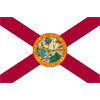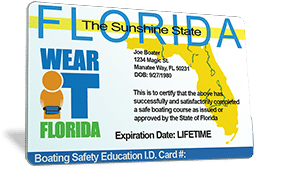
WHO NEEDS A FLORIDA BOATING SAFETY EDUCATION ID CARD?
A Boating Safety Education ID Card is required for boat operators in Florida who were born on or after January 1st, 1988, to legally operate a boat with a motor of 10 horsepower or more. The operator must also carry photo ID on board during operation.
Excellent!
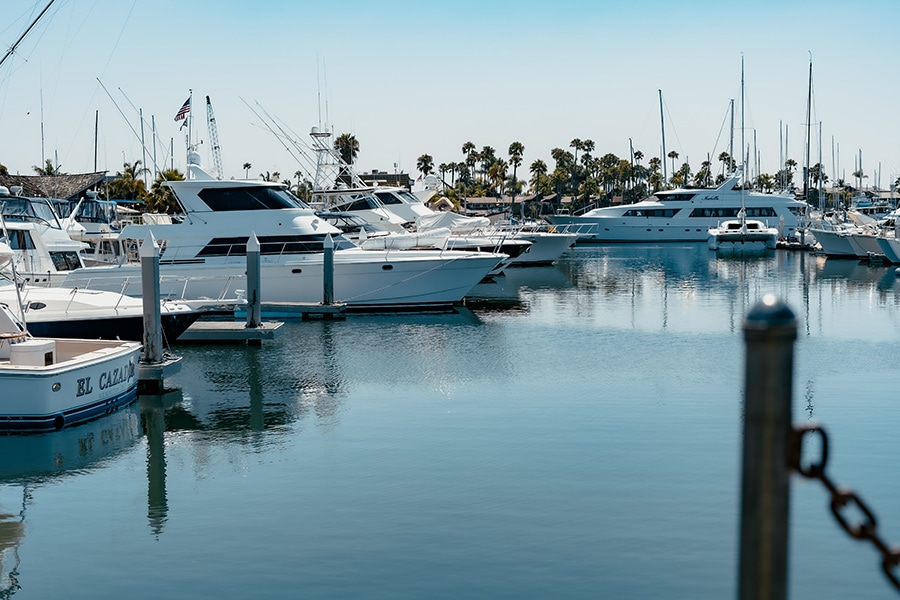

Official Florida boating course
A Boating Safety Education ID Card is required for boat operators in Florida who were born on or after January 1st, 1988, to legally operate a boat with a motor of 10 horsepower or more. The operator must also carry photo ID on board during operation.
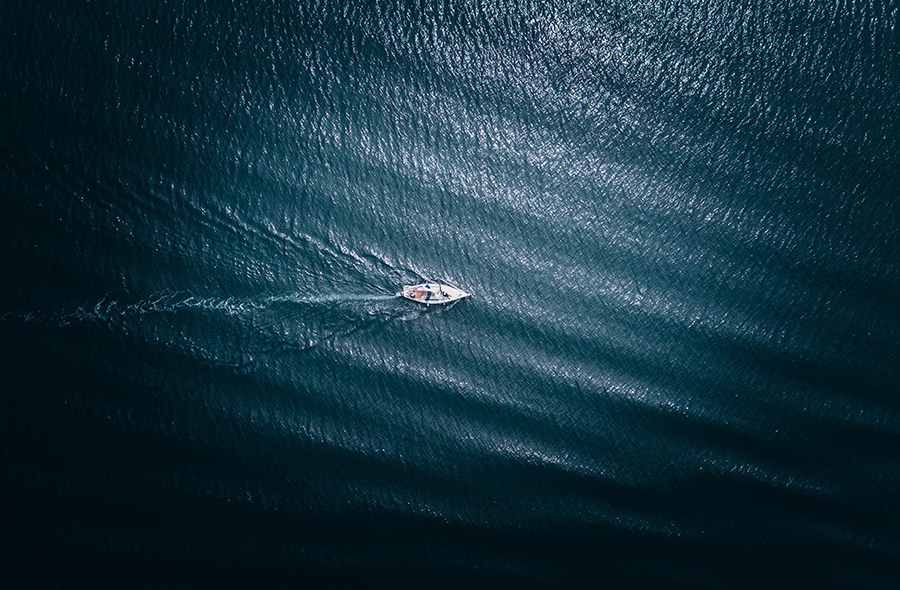

NASBLA & Coast Guard Approved
The BOATsmart! Florida Boating Safety Course is officially recognized by the United States Coast Guard as meeting the standards of the National Recreational Boating Safety Program. BOATsmart!’s online Florida Boating Safety Course is approved by the National Association of State Boating Law Administrators (NASBLA) as it meets and exceeds U.S. Boating Education Standards. NASBLA develops education standards for boating safety and represents boating law administrators in all 50 states and U.S. territories.
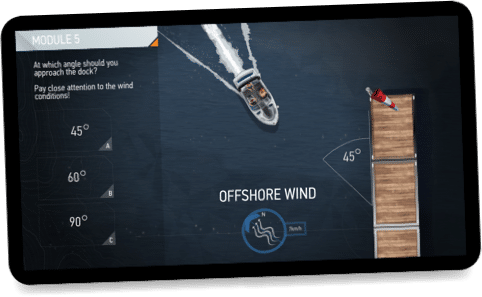
Watch, Listen & Learn
From anywhere, on any device at any time.
Our animated and narrated Boating Safety Course is perfect for all ages. Study from your Smartphone, Tablet or Desktop and switch between devices at any time. BOATsmart! automatically tracks your progress so you can study at your own pace.

FLORIDA BOATING LICENSE REQUIREMENTS
WHAT IS A FLORIDA BOATER EDUCATION CARD?
A Florida Boater Education Certificate (or boating license) proves that you’ve obtained the knowledge you need to safely operate a motorized watercraft on Florida’s waterways. Boaters can get certified by taking the official BOATsmart! Florida Boating Safety Course and Test now.
WHERE CAN I GET MY FLORIDA BOATING LICENSE?
You can get your Florida Boater Education Card by completing the Official BOATsmart! Course online. Once you successfully complete the online study guide and final exam, you can print a temporary card immediately. The Florida Fish and Wildlife Conservation Commission will mail your permanent card within 4-6 weeks.
HOW OLD DO I HAVE TO BE TO GET A BOATER CARD IN FLORIDA?
There is no minimum age requirement to take the online course and get certified with your Florida Boater Education Card however, there are age and horsepower restrictions that apply to boaters who are less than 16 years of age.
AGE AND HORSEPOWER RESTRICTIONS
In Florida, no person under 14 years of age is permitted to operate a personal watercraft (PWC), even if they have obtained their Boating Safety Education ID Card.
HOW LONG DOES IT TAKE TO GET MY BOATING LICENSE?
It takes a minimum of 3 hours to get your Florida Boater Education Card online. Once you’ve completed the online course and official test, you can print a temporary card and go boating right away. Your permanent card will be mailed to you by the Florida Fish and Wildlife Conservation Commission within 4-6 weeks.
CAN I GET REFRESHER LESSONS AFTER TAKING THE FLORIDA BOATING COURSE?
Boaters in Florida can access the BOATsmart! Knowledge Base at any time to stay up-to-date on the latest rules and regulations, including Florida’s state boating regulations, boat safety equipment requirements, navigation regulations, and steps on how to respond in an emergency.
DO I NEED A LICENSE TO RENT A BOAT IN FLORIDA?
Operators of rented boats in the Florida are required to obtain a Boater Education Certificate in order to legally operate a rented boat within the state. Non-residents may be exempt so long as they are carrying proof of boater education from another state. Additionally, no person who is under the age of 18 is permitted to rent a PWC.
Boating and alcohol in Florida
Florida Boating and Alcohol Laws
It is illegal in the state of Florida to operate any boat, or to manipulate any waterskis, sailboard or similar device, while under the influence of alcohol, drugs, controlled substances or a combination thereof.
In Florida, a person is considered to be under the influence if:
- They have a Blood Alcohol Concentration (BAC) level of 0.08 or higher (A BAC level of 0.05-0.08 may also indicate that an operator is under the influence, if accompanied by other evidence).
- They are under the influence of a substance which impairs their abilities.
Additionally, it is illegal for any person under the age of 21 who is found to have a BAC level of 0.02 or higher to operate, or to be in actual physical control of, any boat.
PENALTIES FOR DRINKING AND BOATING
In Florida, a person convicted of operating a boat while under the influence will be subject to the following penalties:
- Upon a first conviction: A minimum fine of $500 and jail time for up to 6 months.
- Upon a second conviction: A minimum fine of $1,000 and jail time for up to 9 months.
Additionally, a person convicted of operating under the influence within 10 years of a prior violation, will be guilty of a 3rd degree felony.
If a person is convicted of operating under the influence for a 3rd time, more than 10 years after a prior violation they may receive a minimum fine of $2,500 and jail time for up to 12 months.
If an operator is involved in an accident as a result of operating under the influence, which results in death, injury or damage to property, they can be convicted of a felony.
Any person operating a boat who has a BAC level of 0.15 or higher or who is impaired and accompanied on the boat by a person who is under the age of 18, could be fined a minimum of $1,000 to upwards of $4,000 and could receive prison time for up to 12 months.
Florida Boating Age Requirements

In Florida, no person under 14 years of age is permitted to operate a personal watercraft (PWC), even if they have obtained their Boating Safety Education ID Card.
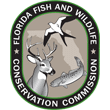
Florida's Boating Fines

Operating under the influence : First conviction
$500 minimum

Harassment, hunting, capture of killing manatees
Up to $50,000

Operating with expired vessel registration
Up to $250

Life jacket violations
Up to $80

Allowing under age PWC use
90 days in jail and up to $100 fine
General Florida boating FAQs
WHO REGULATES BOATING LAWS IN FLORIDA?
The Florida Fish and Wildlife Conservation Commission is responsible for regulating boating laws in the state of Florida.
Boating Emergencies:
Call 911 to report a boating emergency in Florida
WHO ENFORCES FLORIDA’S BOATING LAWS?
Boating laws in Florida are enforced by:
- The Florida Fish and Wildlife Conservation Commission and its officers.
- County sheriffs and their deputies.
- Any other authorized law enforcement officer.
Law enforcement officers have the authority to stop your boat to ensure that you are complying with state and federal laws. Law enforcement also have the authority to order the removal of boats that are considered to be an interference or a hazard to public safety.

How to register a boat in Florida
FLORIDA BOAT REGISTRATION
To operate a boat legally on Florida’s Public Waters, you are required to obtain a Florida Certificate of Registration and a validation decal. Operators are required to carry their Certificate of Registration on board during boat operation. Certificates of Registration are valid for 1-2 years and decals must be renewed annually.
Exemptions:
- Human-powered boats that are less than 16 feet in length.
- Human-powered canoes, kayaks, racing shells or rowing skulls.
- Boats used exclusively on private ponds or lakes.
DO I NEED BOAT INSURANCE IN FLORIDA?
Boats in Florida are not required to be insured, however it is recommended. Some boat owner’s may be required to obtain boat insurance if there is a lien against their boat. Additionally, some marina’s within the state may also require that boaters have liability insurance to protect against damages..
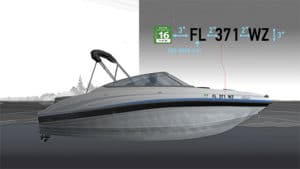
Boats in the state of Florida have a properly displayed registration number and decal. Boaters can be fined for a lack of proper documentation and/or display of registration.
- The registration number must be painted or permanently affixed to each side of the bow, above the waterline.
- The registration number must be in bold, block letters and be at least 3 inches high.
- The color of the registration number must contrast with the color of the boat.
- The registration number must be read from left to right.
- Numbers and letters need to be separated by a space or hyphen that is equal to the width of the letters.
- Decals must be placed within 6 inches of the registration number (either before or after) on the left (port) side of the boat.
- These placement requirements are also applicable to personal watercraft (PWCs).
Florida lifejacket laws

FLORIDA’S LIFE JACKET LAWS
All boats in Florida are required to carry a Coast Guard-approved, wearable lifejacket for each person aboard the boat. Additionally, boats 16 feet in length or greater must also carry a readily accessible, Coast Guard-approved throwable device (i.e. a Type IV PFD).

TOWED SPORTS
Any person being towed behind a boat is required to wear a Coast Guard-approved life jacket (inflatable lifejackets are not permitted).

BOATS MORE 16 FT IN LENGTH
Boats more than 16 ft in length must carry one wearable life jacket (Type I, II, III or V) for each person on board. Additionally, a throwable device must be carried on board all boats than a more than 16 feet in length

Personal Watercraft
Any person aboard a PWC is required to wear a Coast Guard-approved, lifejacket at all times (inflatable lifejackets are not permitted).

Inflatable Lifejackets
Inflatable Type V life jackets must be worn in order to be legal. Users of Inflatable Lifejackets must follow the U.S. Coast Guard label for limited uses.

6YEARS OF AGE & YOUNGER
In Florida, passengers 6 years of age and under are required to wear a Coast Guard-approved, Type I, II or III lifejacket while on board any boat that is under 26 feet in length, while the boat is underway. If the boat is anchored, moored, made fast to the shore, or aground, then it is not considered to be ‘underway’.
Diving and Snorkeling Regulations
DIVER DOWN FLAG REQUIREMENTS
The size of divers-down flags displayed on vessels must be at least 20 inches by 24 inches, and a stiffener is required to keep the flag unfurled. Divers-down flags on vessels must be displayed above the vessel’s highest point so that the flag’s visibility is not obstructed in any direction.
Additionally, diver-down symbols displayed from the water must be at least 12 inches by 12 inches and can be in the form of a flag or a buoy. The buoys must be three or four sided and have a divers-down symbol displayed on each of the flat sides. A divers-down buoy may not be used or displayed on a vessel.
Divers must make a reasonable effort to stay within 300 feet of a divers-down flag or buoy on open waters, and within 100 feet of a flag within rivers, inlets, or navigation channels.
BOATERS OPERATING IN RANGE OF DIVERS
Boat operators must maintain a distance of at least 300 feet from divers-down flags or buoys on open waters and must remain at least 100 feet from flags or buoys on rivers, inlets or navigation channels.
Boats approaching divers-down flags or buoys closer than 300 feet in open water and 100 feet in rivers, inlets and navigation channels must slow to idle speed.
When divers are out of the water, a dive flag or buoy may not be displayed.
Environmental Protection
NON-NATIVE AQUATIC SPECIES
Non-native aquatic species, plants, fish and animals are invading Florida’s waters. Under the right conditions, these pests can take over waterways, and shorelines and negatively impact native fish and wildlife.
Florida’s non-native fish and wildlife program aims to minimize the impact of these non-native species.
Be sure to report new infestations of non-native aquatic species to the U.S. Fish and Wildlife Service at (209) 946-6400 or to the Florida Fish and Wildlife Conservation Commission. Reports sent to the FWCC should include:
- A photograph of the animal
- The location where the animal was found
- The date of the sighting
HELP PREVENT THE SPREAD OF NON-NATIVE SPECIES
- Inspect all surfaces of your boat and remove aquatic plants or animals before leaving any body of water.
- Ensure you flush raw-water cooling systems and clean sea-strainers before moving your boat from one body of water to another.
- Empty and dry any buckets before leaving a body of water.
- Remove any plant fragments from bait wells, fishing gear, trailers, dive gear or props.
- Dispose of plant fragments and bait into a garbage receptacle on land.
- Avoid chopping vegetation with your boat’s propeller.
- Clean and dry all live-wells prior to transporting your boat.
- Drain all water from your motor and bilge and dry all areas.
- Thoroughly wash your boat, including the hull, before putting it into a new body of water.
- Refer to specific drying times.
Infestations of non-native species
Report new infestations of non-native aquatic species to the U.S. Fish and Wildlife Service at (209) 946-6400.
Quagga & Zebra Mussels
Visit www.dbw.ca.gov for more information on quagga and zebra mussels or call (916) 327-1851.
The Sunshine State, Blue Waters, Good Times

Florida Boating Destinations
Boating in Florida?
What’s your favourite way to spend a day on the water in the Sunshine State? Rip it up on a WaveRunner? Skim across a freshwater lake on your SUP board? Catch an epic tube wipeout with your GoPro? No matter your favourite watersport activity is, if you’re visiting Florida you’ll have no trouble finding a spectacular waterway to enjoy! So, will you be visiting Jacksonville, the gateway to the St. John River? Or the crystal blue waters of Miami and the Florida Keys?
How about Fort Lauderdale, known as the ‘Venice of the Americas’, with over 300 miles of inland waterways? Or maybe you’ll be boating along Florida’s Emerald Coast to check out the beachside communities of Destin, Panama City or St. Petersburg? Truth is, it doesn’t really matter where you’ll be, there’s boating all the way around and everywhere in between when you’re boating in Florida.
BEST BOATING LAKES
So, with endless options, where should you start? To help you plan out your Florida boating trip, we’ve listed a few of our favorite places to go boating in Florida and thrown in a couple ideas for boating activities too. But don’t let this list limit your travels – there are over 8,000 miles of shoreline and 7,000 lakes in Florida! Happy boating!

